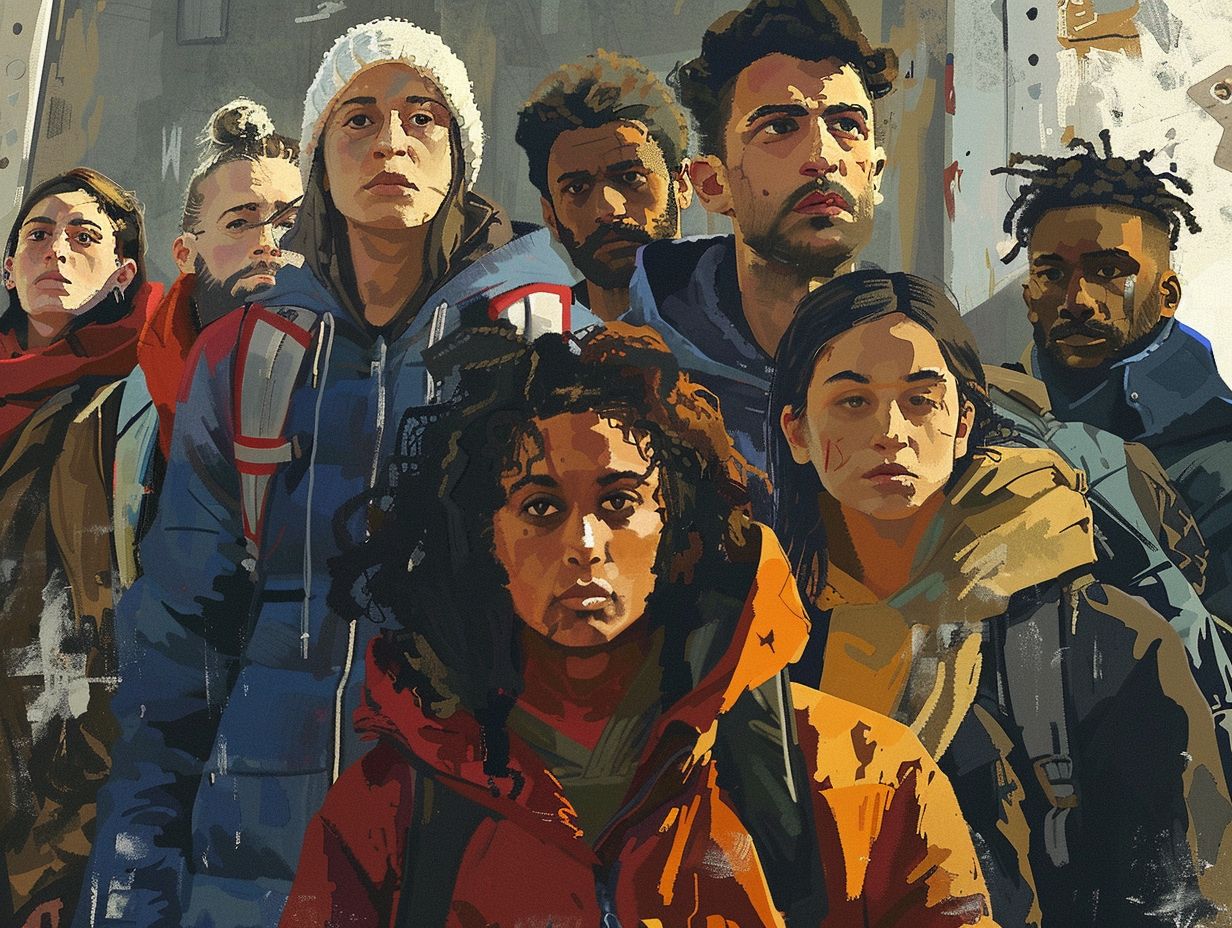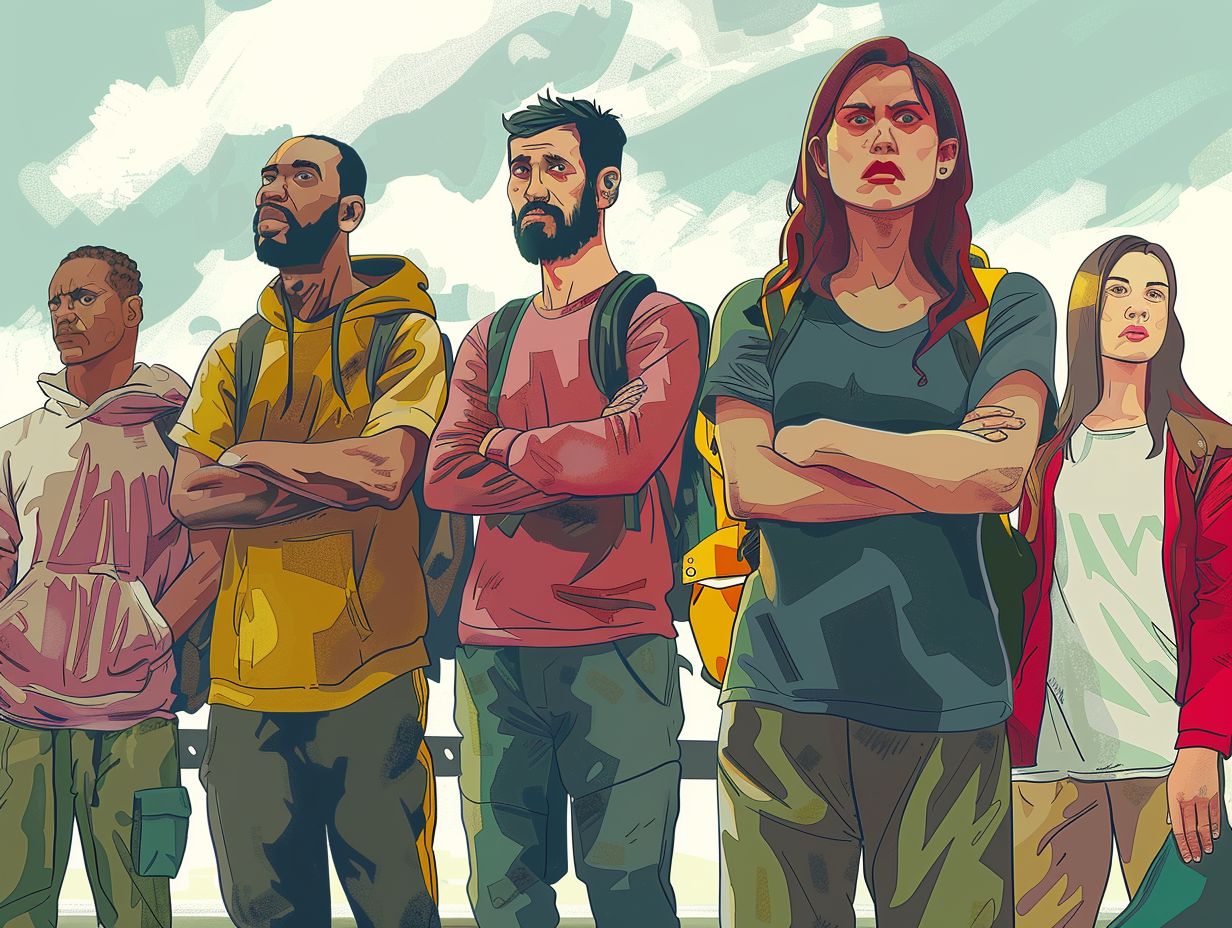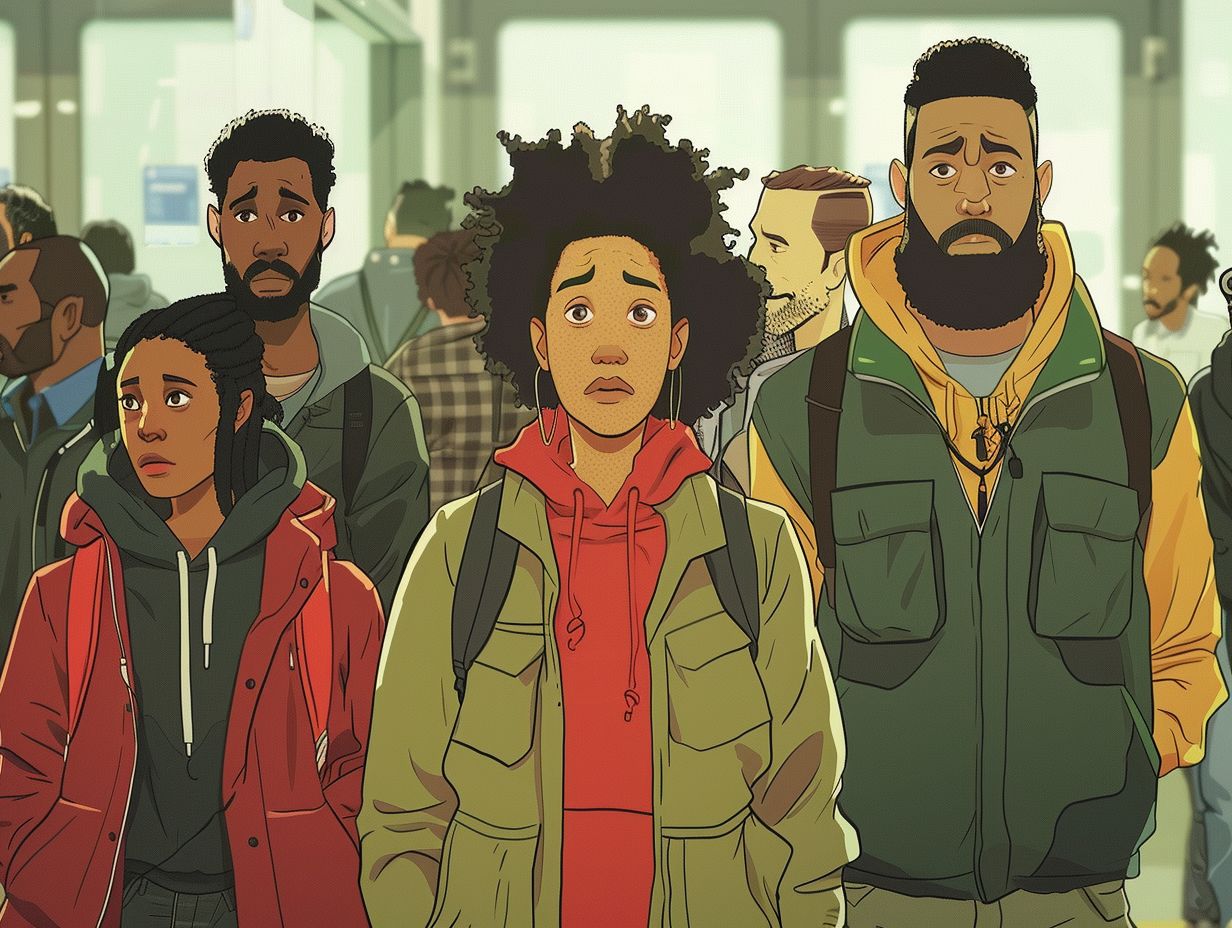The new immigration laws have brought about some big changes in your life and the lives of immigrant communities. These changes go beyond just legal stuff – they have social and economic impacts that run deep.
You’re probably curious about how all these changes are affecting immigrant communities and what people are doing about it. Well, protests and advocacy work have been pretty important in response to these changes, but there are still challenges and roadblocks to overcome.
If you’re wondering about what the future holds, this article also dives into predictions and analysis on the potential long-term effects of these new laws. So, buckle up and get ready to explore the rollercoaster of changes that are shaking things up in the immigrant community.
Overview of New Immigration Laws

You may have noticed that the world of immigration laws has seen some big changes lately. New laws and policy updates have been rolled out to tackle different issues and openings in the migration system.
Explanation of Changes
You need to be aware of the recent changes in immigration laws. These reforms bring in stricter compliance measures and more streamlined processes for implementation.
The goal of these reforms is to boost security measures by requiring more rigorous background checks for individuals looking to obtain immigration status. They also aim to speed up the application process by moving paperwork online and improving communication between immigration authorities and applicants.
Additionally, the legislative changes address any loopholes that could be exploited in the system, ensuring that immigration requests are processed fairly and transparently. The government is implementing these reforms to maintain the integrity of the immigration system, all while improving efficiency and accountability in decision-making processes.
Effects on Immigrant Communities
The new immigration laws are really shaking things up for immigrant communities like yours, messing with your legal status, rights, and how well you can fit into society.
Impact on Legal Status and Rights
The new immigration laws significantly impact your legal status and rights as an immigrant, especially if you’re seeking asylum or citizenship. They also affect your access to due process and legal representation.
These changes have shifted the ways you can pursue citizenship and asylum. The asylum-seeking procedures have become tougher, so you’ll need to navigate a complex legal system.
These modifications stress the importance of due process and the necessity of having proper legal representation to protect immigrants’ rights. With immigration policies constantly changing, it’s crucial for both you as an immigrant and legal advocates to understand these legal complexities.
Social and Economic Consequences

The social and economic consequences of the new immigration laws extend far and wide, affecting public opinion, the labor market, and access to essential services like education and health care.
Regarding immigration reforms, they can really shake things up in the labor market by bringing in a diverse group of skilled workers who can help boost economic growth. With more people in the workforce, businesses might see a rise in productivity and fresh ideas. But, this shift could also raise concerns among local workers about having to compete for jobs and possibly facing wage freezes.
Access to education and healthcare services is another big deal impacted by immigration policies. With the right integration programs, immigrants have the chance to enrich a community and offer new viewpoints. However, this influx could strain public resources, especially in areas with a high number of immigrants.
Responses to New Immigration Laws
Your response to the new immigration laws may vary, with protests and advocacy efforts popping up all over the place. These changes bring a mix of challenges and opportunities that are getting a lot of attention.
Protests and Advocacy
In the fight for immigrant rights, you play a key role in shaping public discourse around new immigration laws. Community leaders and support services are out there, rallying for sanctuary cities and standing up for immigrant rights.
Protests and advocacy are like megaphones for marginalized communities, helping to shed light on the challenges faced by immigrants in unfamiliar lands. Through these movements, you not only call for changes in the law but also help build empathy and understanding among the wider public.
Community organizations are there to offer vital support, from legal aid to language assistance, helping newcomers settle into their new surroundings. Sanctuary cities are like beacons of hope, providing a safe space for those facing deportation and showing solidarity in the struggle for immigrant rights.
Challenges and Limitations
Regarding implementing new immigration laws, you’re up against a slew of challenges and limitations. From enforcement issues to compliance hurdles, not to mention potential violations and their consequences, it’s no walk in the park.
Enforcing these laws is no joke, especially with the sheer number of people involved, different levels of cooperation from various parties, and the hefty resources needed to keep everything in check. Compliance problems tend to crop up due to the complexities of the legal system, language barriers, and varying cultural norms that can make it tough for folks to fully grasp and follow the rules.
And let’s not forget about the serious consequences of violating immigration policies – think deportation, fines, and even criminal charges. It just goes to show how crucial it is to have effective enforcement strategies in place.
Potential Long-Term Effects

You need to grasp the critical long-term effects of the new immigration laws. Predictions and analysis point to a range of impacts on demographics, economic growth, and multiculturalism that you should be aware of.
Predictions and Analysis
Predictions and analysis of the new immigration laws suggest a range of global perspectives and implications for international relations and potential humanitarian crises.
Many experts believe that these immigration policy changes could significantly impact the dynamics of international diplomacy and cooperation. As you adjust your own immigration policies in response, there may be a ripple effect across various regions, affecting trade agreements, security alliances, and global power dynamics. The potential increase in refugee populations due to stricter immigration laws could also strain resources and support systems, leading to potential humanitarian crises on a larger scale. The interconnected nature of the world today means that any shifts in immigration policies can have far-reaching consequences beyond national borders.
Frequently Asked Questions
What are some potential impacts of new immigration laws on immigrants?
New immigration laws can greatly affect immigrants in various ways, such as their ability to enter a country, obtain legal status, and access certain benefits and services. They may also face increased discrimination and challenges in their daily lives.
How do immigration laws affect the mental health of immigrants?

The uncertainty and stress of navigating new immigration laws can have a significant impact on the mental health of immigrants. This includes anxiety, depression, and post-traumatic stress disorder (PTSD), among other conditions.
Will new immigration laws lead to family separation?
New immigration laws can potentially lead to family separation, particularly if certain family members are unable to enter a country or obtain legal status due to the laws. This can have devastating effects on families and communities.
Do new immigration laws impact access to education for immigrant children?
Depending on the specific laws, immigrant children may face barriers in accessing education, such as being unable to enroll in school or being denied certain educational opportunities. This can greatly impact their future prospects and opportunities.
How do new immigration laws affect undocumented immigrants?
New immigration laws can have a significant impact on undocumented immigrants, as they may face increased risk of deportation and limited access to resources and support. This can lead to a constant state of fear and insecurity for these individuals.
Can new immigration laws lead to a decrease in diversity and cultural enrichment?
Yes, new immigration laws that limit or restrict the entry of immigrants can ultimately lead to a decrease in diversity and cultural enrichment within a country. This can have long-lasting repercussions on the economy, social fabric, and overall well-being of a nation.